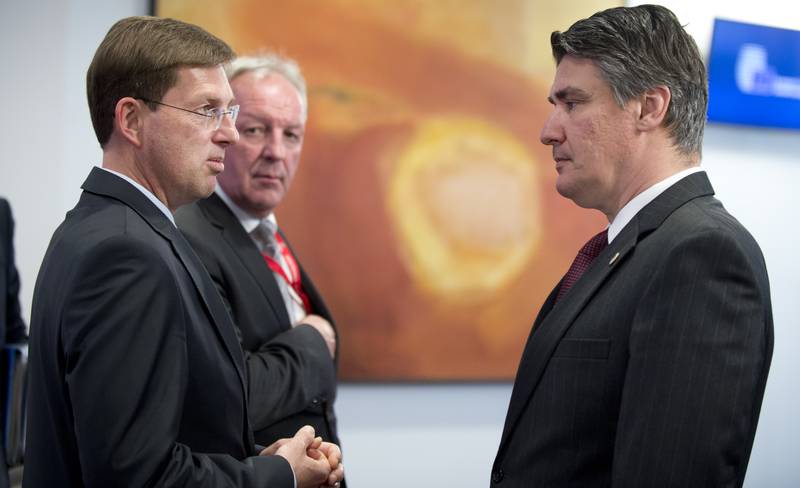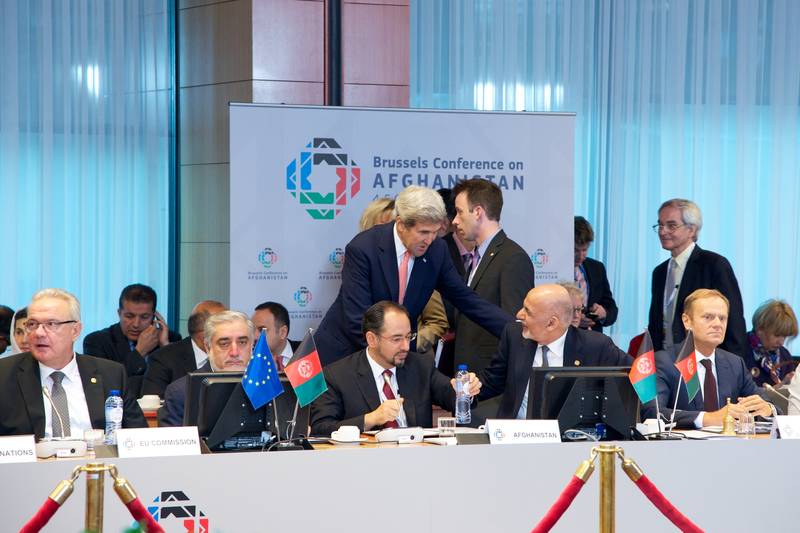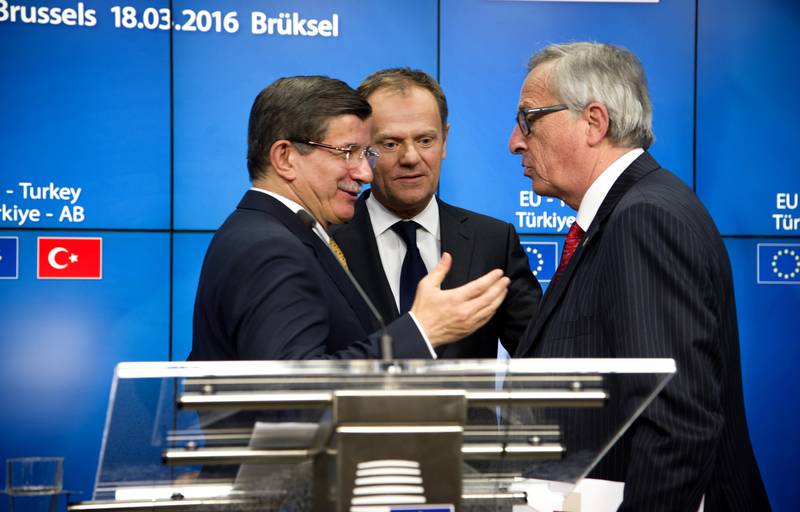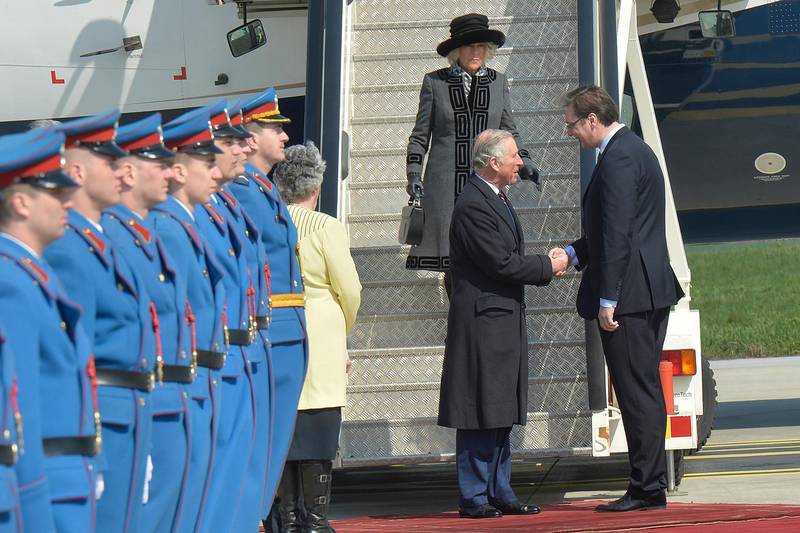Is There Risk to Bilateral Relations in South-East Europe?
Adelina Marini, September 22, 2015
 When the refugee crisis subsides and if the EU has survived and managed to reach a decision for common action, the subject will come up in the agenda of how bad the wounds are that states of South-East Europe are dealing to each other at the moment in the attempt to save their skin “every man for himself” while at the front lines of the refugee wave. Diplomatic speech is totally abandoned between member states and between members and candidates. Instead, insults and threats are flying over the borders daily and the European Commission has no answer to the growing number of questions about the present and the future. More and more often the answers of spokespersons are “We are not here to comment on governments.” The most-affected states are in a state of circle defence against their neighbours and are starting to recall old battles.
When the refugee crisis subsides and if the EU has survived and managed to reach a decision for common action, the subject will come up in the agenda of how bad the wounds are that states of South-East Europe are dealing to each other at the moment in the attempt to save their skin “every man for himself” while at the front lines of the refugee wave. Diplomatic speech is totally abandoned between member states and between members and candidates. Instead, insults and threats are flying over the borders daily and the European Commission has no answer to the growing number of questions about the present and the future. More and more often the answers of spokespersons are “We are not here to comment on governments.” The most-affected states are in a state of circle defence against their neighbours and are starting to recall old battles.
The refugee crisis turned out to be a great test for bilateral relations in South-East Europe after Hungary built a metal fence along its border with Serbia and finally shut it off for good. This rerouted the refugee flow to Croatia. Just after the first two days of diverting the refugee flow sparks started to fly from Croatia towards its neighbours, especially towards Hungary. The culmination was on Friday at noon when Prime Minister Zoran Milanović called an emergency press conference at which he sent sharp criticisms towards Hungary without minding his language at all. He spared no invective towards Serbia either. When asked to comment on one more provocative speech of Serbian Minister of Labour Aleksandar Vulin, Mr Milanović answered rudely: “The eagle wastes no time chasing flies. We are the eagle.”
This was met as an insult in neighbouring Serbia and Minister Vulin’s answer came swiftly: “Milanović reminds of a domestic bird that lays eggs and is plucked before it is eaten.” Although he kept in touch with his Slovenian colleague Miro Cerar, Milanović did not skip noting that Slovenia often stood against Croatia and during the EU accession process Slovenia often placed a veto in an attempt to secure the solving of the next bilateral dispute that came up after the disintegration of former Yugoslavia. The not-so-amiable history between the two states surfaced again recently after the discoveries that Slovenia has violated the rules of the arbitration that was set up to solve the border dispute between the two countries over the Gulf of Piran.
Starting with this dispute Slovenia hinted that it could veto Croatia’s accession to the Schengen area. At that time such a veto had hardly a chance, but the situation is different now. On Friday both Slovenia and Hungary sharply criticised Croatia for the manner in which it is dealing with the influx of refugees and stated that it is not suitable for Schengen membership. This sets the question whether the two states might at a later stage use the situation to veto a Croatian membership. Hungary has problems with Croatia over the Croatian petrol company INA, some of whose shares are held by the Hungarian MOL. Hungary refuses to comply with the ruling of Croatian Judiciary and send the boss of MOL to appear in court as a witness in the lawsuit against former Croatian Prime Minister Ivo Sanader. Such statements, especially combined with the building of a wire fence on the Hungarian-Croatian border and the closing down of the Slovenian-Croatian border, escalated tension in Croatia dramatically and brought another round of insults and threats.
Over the weekend Deputy Prime Minister and Minister of Interior of Croatia Ranko Ostojić erupted and said that Orbán, Vulin, and Karamarko (leader of the largest opposition party in Croatia) have created a hysteria headquarters (headquarters for hysteria). Budapest answered by saying that Croatia had let not only Hungary down, but the entire EU. Hungarian Minister of Foreign Affairs and Trade Péter Szijjártó attacked Romania as well, who had expressed resentment towards Hungary’s behaviour and the intention of the government to build a wall along the Romania border as well. Prime Minister Victor Ponta stated that he concurred with the opinion of the Serbian, Croatian, and Austrian Prime Ministers, the EC, and the Secretary-General of the UN that the Hungarian treatment of the crisis is “un-European and a shame to Europe.” Romanian Foreign Minister called Hungary’s behaviour “an autistic and unacceptable act.”
In response Mr Szijjártó stated that he expected more modesty of the Foreign Minister “of the prosecuted Romanian Prime Minister”. With that the Hungarian foreign minister attempted to belittle the Romanian official position reminding that the Romanian PM is under investigation for corruption. “We are a more than a thousand-year-old state which has been compelled to protect not only its own borders but also those of Europe more than once during the course of its history. This will be the case in this instance as well, whether the Romanian foreign minister likes it or not”. In an interview for Croatian television channel RTL on Monday evening PM Zoran Milanović played down the threats about Schengen in saying that if this is what the Schengen area is, “then we do not need it”. Schengen, what it is supposed to be by the rules – yes, but what it is right now (including the situation in Greece) – no, he snapped.
In Serbia Foreign Minister Ivica Dačić used heavy words in his wrath against the decision of Croatia to close for freight transport the only open border crossing between the two countries – Bajakovo – because of the huge line at the Slovenian border. “Serbia cannot afford to be a concentration camp, surrounded by wire and with shut down transport and nobody caring about that. Is Europe capable of ruling through an organisation like the EU? If it isn’t, Serbia will be forced to introduce counter-measures”, threatened Dačić at a press conference in Warsaw.
“Now it is clear what is Europe’s secret weapon in dealing with the refugee storm – the Balkans. Balkan geography, the often quarrelling political fixtures, society, which remembers long but forgets quickly, a long history of lack of tolerance – all this to the rich Europeans are good arguments for using the Balkan states as a temporary buffer zone against the raids from the South”, wrote in a commentary [in Serbian] Vesna Knežević, correspondent for Serbian national television in Vienna. She stood in for Croatia by pointing out that everyone in Europe is laughing at the Croats, who capitulated after just 24 hours faced by a relatively small number of refugees,  “but they are forgetting that Croatia has for years been spiralling into a bottomless political and economic downfall”. Europe should take pity, writes the journalist.
“but they are forgetting that Croatia has for years been spiralling into a bottomless political and economic downfall”. Europe should take pity, writes the journalist.
Serbia is adamantly trying to present itself as the good guy in the whole situation with the hope of receiving kudos in the annual report of the EC on the country’s progress towards European membership which would unlock the first negotiation chapters. Romania and Bulgaria are hoping to squeeze into Schengen. Although Bulgaria was subjected to refugee pressure, after introducing restrictive measures at the borders the country is avoided by refugees and so is Romania. Hungary and Slovenia are obviously positioning themselves as much better guardians of the Schengen border than Greece, and Croatia insists on being perceived as part of Western Europe. All this to the expense of neighbourly relations.
How will all this end? What will be the consequences to old unsolved issues?
Most likely, when the tension subsides, states will return to their normal relations but, still, the question remains whether Croatia’s and also Romania’s accession to Schengen will fall prey to the current situation. To Romania this would be a huge blow, as it counts on the impressive battle with corruption at the high levels of power being led over the last year to guarantee it separation from being teamed up with Bulgaria and an acceptance to Schengen. Immediately following the diversion of the refugee flow towards Croatia began a warm-up of relations between Serbia and Hungary if only with the agreement to open one of the border crossings between them. It is highly unlikely the current crisis will affect Serbia’s ambitions to guarantee itself a favourable report from the EC.
Unless member states begin returning refugees back to Serbia as a first safe state from which they entered the EU. This way the EU will probably save the relationships among its South-East members by transferring the problem to the candidates, but could endanger its relations with a very difficult partner in the enlargement process. It remains to be seen what the reaction to Hungary’s latest provocation will be, whose Parliament approved using armed forces at the borders, which in extreme cases includes live fire. And that at a border with an ally country in the EU and NATO.
Few hours remain to the meeting of Ministers of Interior [it started while this article was translated], as well as to the summit on Wednesday. The sooner a common decision is reached the lesser the long-term damage will be to bilateral relations and most of all to the credibility of the enlargement process. For it could turn out that all of the current, alas minor, progress so far will be wiped out by the tide of several tens of thousands of refugees from a war that everyone – members and candidates alike – kept their eyes shut about. It will also be important when Schengen is the subject of conversation that words are chosen carefully, distinguishing between the usual functioning of the system and the pressure, caused by an extreme humanitarian situation like the current one.
Translated by Stanimir Stoev
 | © Council of the EU
| © Council of the EU Davutoglu, Tusk, Juncker | © Council of the EU
Davutoglu, Tusk, Juncker | © Council of the EU | © Vlada RS
| © Vlada RS